Guest: Russia-Ukraine author, expert Anatol Leiven of the Quincy Inst. for Responsible Statecraft; Also: Huge new jobs numbers for February as Biden economic boom continues, despite media failure in reporting it...
 On today's BradCast: We'll leave the drumbeat of military experts and 24-hour, round-the-clock war porn to the cable news nets, and focus instead today on a path to peace, with a longtime expert on the complicated relationship between Ukraine and Russia. [Audio link to full show is posted at end of this summary.]
On today's BradCast: We'll leave the drumbeat of military experts and 24-hour, round-the-clock war porn to the cable news nets, and focus instead today on a path to peace, with a longtime expert on the complicated relationship between Ukraine and Russia. [Audio link to full show is posted at end of this summary.]
FIRST UP, however, back here in the U.S., more astoundingly good new jobs numbers were reported by the Labor Department. Some 678,000 new jobs were created last month, and revisions to monthly numbers for December and January add another 100,000 to the already record numbers. Also, the unemployment rate fell even further to a rate of 3.8%, not seen since before the pandemic. Much of that, according to experts, is thanks to Biden and the Democrats American Rescue Plan, passed without any Republican support early last year.
But even while Biden's economy continues to boom with a record 6.6 million new jobs created over the past year --- the most for any single year since record-keeping on this began in the 1930s --- and the highest growth in GDP since the 1980s, Americans appear completely clueless about these facts. Former WaPo columnist, Dan Froomkin, now author of the Press Watch newsletter, explains today why he blames the media for their dismal failures in properly educating the electorate on the basic, cold, hard facts. "When the public thinks up is down," he argues, "it’s time to rethink coverage."
NEXT, regrettably if necessarily, it's back to Russia's horrific, unprovoked war on Ukraine, after a harrowing night during which the largest nuclear power plant in Europe came under attack by Putin's forces, setting part of it ablaze for a time and rattling a lot of nerves in the bargain, and not just in Ukraine.
We're joined today from Great Britain by ANATOL LIEVEN, a former war correspondent in Afghanistan, Pakistan, Chechnya and other former Soviet nations. Lieven has served as a professor in Qatar and at the War Studies Dept. at King's College London and has written a number of books about Ukraine and Russia and other Eastern European conflicts following the fall of the USSR. He is now a Senior Research Fellow at the Quincy Institute for Responsible Statecraft where, on Thursday, he penned a quite welcome article on "How to get to a place of peace for Ukraine".
Lieven shares his deep expertise not only on that roadmap, and the hard, but necessary choices it'll require from Ukraine, Russia, the U.S., the EU and NATO, but also much more on how we got to this horrific place; what Putin really wants both on a macro historic level and out of this current conflict; what could happen if peace is not achieved; how this war is being understood by both average Russians, amid heavy-handed media restrictions, and those close to Putin; and whether Putin should be taken seriously regarding his recent, repeated, barely veiled threats of unleashing his nuclear arsenal.
We cover quite a bit of ground in this conversation, all of which is well worth tuning in for. But, just to cover a few of the key points from Lieven today...
On whether Putin is really hoping to brush back NATO's eastward expansion following the end of the Cold War or whether his attack on Ukraine is an attempt to prevent the threat posed by a prosperous, Western-leaning, market-based democracy in a neighboring, former Soviet county, Lieven believes it's the former. He explains that while Putin has been previously willing to accept some NATO expansion, he draws the line at border countries like Georgia and Ukraine, as would the U.S. if, for example, Mexico entered a military alliance with China.
"I think the reason so many people in America, in the West, in NATO" are now claiming this is about preventing a blossoming democracy on Russia's western border "is, basically, to cover their own tracks. They were warned, repeatedly, that this was going to lead to war. They didn't want to listen. And now, they're saying that it wasn't about NATO expansion because they don't want to acknowledge they were warned that this would lead to crisis," Lieven argues. "That doesn't, of course, excuse Putin's invasion. We don't know what's going on in Putin's head, but we do know what the Russians have said repeatedly for almost thirty years."
On Putin's claim that the invasion was meant to end an ongoing "genocide" and to "demilitarize and denazify Ukraine," Lieven scoffs, describing some of the realities about the limited reach of the ultra-nationalist Azov Movement in Ukraine. "This is absolutely grotesque Russian propaganda, colossally exaggerated," he says, adding that the accusation about Ukrainian President Volodymyr Zelenskyy, who is Jewish and lost family members to the Nazis during WWII "is unspeakably mendacious and grotesque. This is not Nazi-ism and this is not genocide. That is a lie on a truly monstrous scale by Putin."
As to his proposed plan for peace, and the difficult choices that will come with it for many in the West, as he detailed yesterday at the Quincy Institute, it largely comes down to an agreement where Ukraine declares neutrality (not unlike Austria did in the 1950s), which means they won't join NATO, but they also won't join an alliance with the eastern military bloc either; ceding Crimea and the eastern Donbass regions held by Russia-backed separatists before the war to the Russians (though internationally-observed referendums should be held by the citizens of each region and territory gained during the current crisis would be returned to Ukraine), and all of the Western sanctions on Russia, both before and during the war would be lifted. There is, of course, a bit more to it, but that seems to be the general contours.
I ask if Putin would accept such an agreement and whether it would be seen as rewarding him for his aggression. "If what you really care about is ending the war and saving the lives of Ukrainians, and eliminating the threat of nuclear annihilation, people need to say just what is wrong with an agreement along these lines," Lieven answers. "If this were offered and the Russians then refused it, and introduced new demands, like replacing the Ukrainian government, then we would know that Putin's ambitions went much further. And that, of course, would be totally illegitimate and a peace agreement would be impossible. But we don't know that until that has been offered."
"In international affairs, alas, you always have to mix some combination of respect for international law with respect for realities on the ground if you're not prepared to fight," he tells me. Or, as he quotes Robert A. Lovett, U.S. Defense Secretary from 1951 to 1953, at the beginning of his article laying out this roadmap: "Forget the cheese --- let's get out of the trap."
 CLICK TO LISTEN OR DOWNLOAD SHOW!...
CLICK TO LISTEN OR DOWNLOAD SHOW!...
* * *While we post The BradCast
here every day, and you can hear it across all of our great affiliate stations and websites, to automagically get new episodes as soon as they're available sent right to your computer or personal device, subscribe for free at iTunes, Pandora, TuneIn, Google, Amazon or our native RSS feed!* * *
 The war porn continues on too much of the corporate media. Too many pundits. Too many self-declared experts without actual expertise or who have ideological axes to grind. Too much politics, not enough talk about how to get to peace. Once again on today's BradCast, we're trying our best to get there. [Audio link to full show is posted below this summary.]
The war porn continues on too much of the corporate media. Too many pundits. Too many self-declared experts without actual expertise or who have ideological axes to grind. Too much politics, not enough talk about how to get to peace. Once again on today's BradCast, we're trying our best to get there. [Audio link to full show is posted below this summary.]

 Silent Nights, Holy Hell
Silent Nights, Holy Hell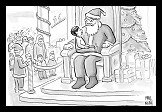 Sunday 'Happyish Holidays' Toons
Sunday 'Happyish Holidays' Toons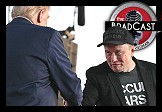 Trump Gets Trumped in Our Musky Year-End Roundtable: 'BradCast' 12/19/24
Trump Gets Trumped in Our Musky Year-End Roundtable: 'BradCast' 12/19/24 'Green News Report' 12/17/24
'Green News Report' 12/17/24
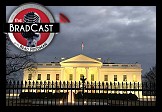 About Some of Trump's 'Day One' Threats: 'BradCast' 12/18/24
About Some of Trump's 'Day One' Threats: 'BradCast' 12/18/24 Trump Family Corruption Cometh...So Does Our Opposition: 'BradCast' 12/17/24
Trump Family Corruption Cometh...So Does Our Opposition: 'BradCast' 12/17/24 'Green News Report' 12/17/24
'Green News Report' 12/17/24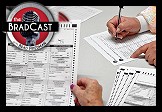 Mistallied Contests Found in OH County, as Oligarchy Rises in D.C.: 'BradCast' 12/16
Mistallied Contests Found in OH County, as Oligarchy Rises in D.C.: 'BradCast' 12/16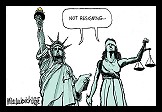 Sunday 'Barrel Bottom' Toons
Sunday 'Barrel Bottom' Toons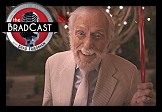 Trump Admits He Can't Lower Grocery Prices (Biden Just Did): 'BradCast' 12/12/24
Trump Admits He Can't Lower Grocery Prices (Biden Just Did): 'BradCast' 12/12/24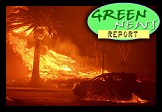 'Green News Report' 12/12/24
'Green News Report' 12/12/24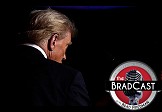 What 'Unprecedented and Powerful Mandate'?: 'BradCast' 12/11/24
What 'Unprecedented and Powerful Mandate'?: 'BradCast' 12/11/24 Trump Barely Won Natl'y, But Won 'News Deserts' By Landslide: 'BradCast' 12/10/24
Trump Barely Won Natl'y, But Won 'News Deserts' By Landslide: 'BradCast' 12/10/24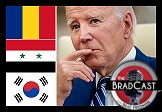 Bad Weekend for Authoritarians; Also: Pardon or Not?: 'BradCast' 12/9/24
Bad Weekend for Authoritarians; Also: Pardon or Not?: 'BradCast' 12/9/24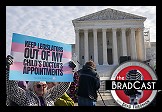 Fox 'News' and GOP Get Their Hateful War on Trans Kids at SCOTUS: 'BradCast' 12/5/24
Fox 'News' and GOP Get Their Hateful War on Trans Kids at SCOTUS: 'BradCast' 12/5/24 'Mind Boggles at Potential Corruption' in Trump Scheme: 'BradCast' 12/4/24
'Mind Boggles at Potential Corruption' in Trump Scheme: 'BradCast' 12/4/24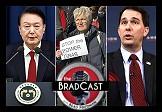 In Defense of Democracy from S. Korea to N. Carolina: 'BradCast' 12/3/24
In Defense of Democracy from S. Korea to N. Carolina: 'BradCast' 12/3/24 Hunter's Pardon: 'BradCast' 12/2/24
Hunter's Pardon: 'BradCast' 12/2/24 How (and Why!) to 'Extend Olive Branch' to MAGA Members: 'BradCast' 11/21/24
How (and Why!) to 'Extend Olive Branch' to MAGA Members: 'BradCast' 11/21/24
 VA GOP VOTER REG FRAUDSTER OFF HOOK
VA GOP VOTER REG FRAUDSTER OFF HOOK Criminal GOP Voter Registration Fraud Probe Expanding in VA
Criminal GOP Voter Registration Fraud Probe Expanding in VA DOJ PROBE SOUGHT AFTER VA ARREST
DOJ PROBE SOUGHT AFTER VA ARREST Arrest in VA: GOP Voter Reg Scandal Widens
Arrest in VA: GOP Voter Reg Scandal Widens ALL TOGETHER: ROVE, SPROUL, KOCHS, RNC
ALL TOGETHER: ROVE, SPROUL, KOCHS, RNC LATimes: RNC's 'Fired' Sproul Working for Repubs in 'as Many as 30 States'
LATimes: RNC's 'Fired' Sproul Working for Repubs in 'as Many as 30 States' 'Fired' Sproul Group 'Cloned', Still Working for Republicans in At Least 10 States
'Fired' Sproul Group 'Cloned', Still Working for Republicans in At Least 10 States FINALLY: FOX ON GOP REG FRAUD SCANDAL
FINALLY: FOX ON GOP REG FRAUD SCANDAL COLORADO FOLLOWS FLORIDA WITH GOP CRIMINAL INVESTIGATION
COLORADO FOLLOWS FLORIDA WITH GOP CRIMINAL INVESTIGATION CRIMINAL PROBE LAUNCHED INTO GOP VOTER REGISTRATION FRAUD SCANDAL IN FL
CRIMINAL PROBE LAUNCHED INTO GOP VOTER REGISTRATION FRAUD SCANDAL IN FL Brad Breaks PA Photo ID & GOP Registration Fraud Scandal News on Hartmann TV
Brad Breaks PA Photo ID & GOP Registration Fraud Scandal News on Hartmann TV  CAUGHT ON TAPE: COORDINATED NATIONWIDE GOP VOTER REG SCAM
CAUGHT ON TAPE: COORDINATED NATIONWIDE GOP VOTER REG SCAM CRIMINAL ELECTION FRAUD COMPLAINT FILED AGAINST GOP 'FRAUD' FIRM
CRIMINAL ELECTION FRAUD COMPLAINT FILED AGAINST GOP 'FRAUD' FIRM RICK SCOTT GETS ROLLED IN GOP REGISTRATION FRAUD SCANDAL
RICK SCOTT GETS ROLLED IN GOP REGISTRATION FRAUD SCANDAL VIDEO: Brad Breaks GOP Reg Fraud Scandal on Hartmann TV
VIDEO: Brad Breaks GOP Reg Fraud Scandal on Hartmann TV RNC FIRES NATIONAL VOTER REGISTRATION FIRM FOR FRAUD
RNC FIRES NATIONAL VOTER REGISTRATION FIRM FOR FRAUD EXCLUSIVE: Intvw w/ FL Official Who First Discovered GOP Reg Fraud
EXCLUSIVE: Intvw w/ FL Official Who First Discovered GOP Reg Fraud GOP REGISTRATION FRAUD FOUND IN FL
GOP REGISTRATION FRAUD FOUND IN FL




















 On today's
On today's  We continue the impossible balancing act on today's
We continue the impossible balancing act on today's 







 "Democracies are rising to the moment," President Biden forcefully asserted during his first official State of the Union address on Tuesday night. "And the world is clearly choosing the side of peace and security." Is he right? We discuss that and much more on Biden's impossible address last night on today's
"Democracies are rising to the moment," President Biden forcefully asserted during his first official State of the Union address on Tuesday night. "And the world is clearly choosing the side of peace and security." Is he right? We discuss that and much more on Biden's impossible address last night on today's  Gotta keep this very brief as tonight's State of the Union address begins shortly (full coverage on tomorrow's
Gotta keep this very brief as tonight's State of the Union address begins shortly (full coverage on tomorrow's 
 It was a very lively
It was a very lively 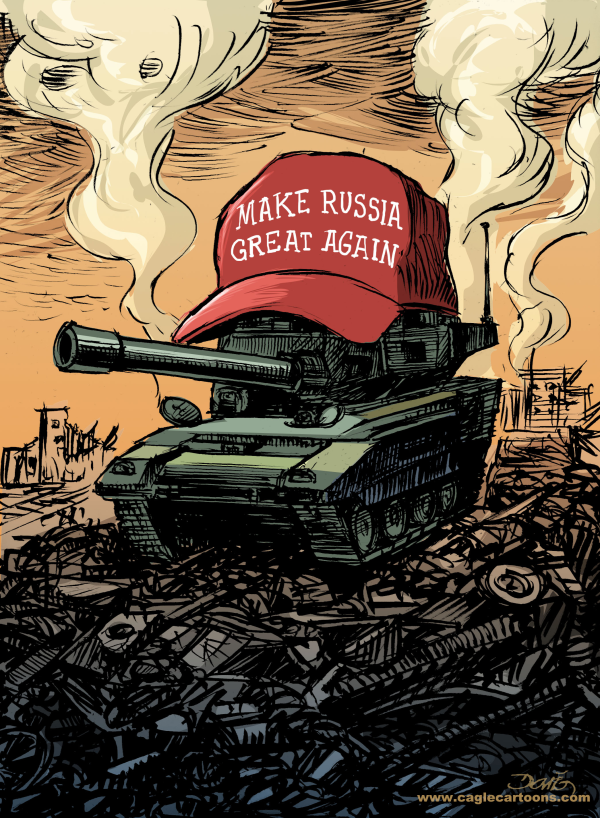
 It's
It's  Vladimir Putin and the Kremlin falsely and repeatedly vowed that Russia had no intention or plan to invade Ukraine. Anyone who said otherwise was simply being "hysterical". As it turns out, those were all deadly lies, as we cover in detail on today's
Vladimir Putin and the Kremlin falsely and repeatedly vowed that Russia had no intention or plan to invade Ukraine. Anyone who said otherwise was simply being "hysterical". As it turns out, those were all deadly lies, as we cover in detail on today's 
 The bad news for democracy continues overseas on today's
The bad news for democracy continues overseas on today's  On today's
On today's 













